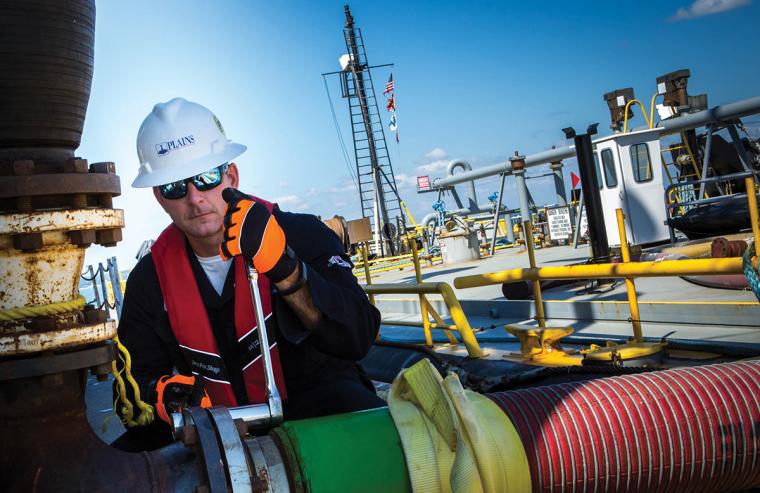

Virginia’s leadership position can be attributed to a number of assets, including a pro-business environment, exceptional transportation and utility infrastructure, a world-class education system and a strategic Mid-Atlantic location within a one-day drive of 47 percent of the U.S. population. Virginia boasts competitive operating costs and a six percent corporate income tax, one of the lowest in the nation, that hasn’t increased since 1972. These elements provide a foundation for growth, enabling the Commonwealth to successfully compete for major projects.
From Capital One Financial and General Dynamics Corporation to Nestlé USA and Owens & Minor, Virginia serves as the headquarters for 37 Fortune 1000 firms and 56 firms with annual revenue over $1 billion. The diversity of companies in Virginia — Arconic, Dollar Tree, Ferguson, Gerber, Lidl US, Navy Federal Credit Union and Northrop Grumman, to name a few — demonstrates the Commonwealth’s attractiveness to leading companies.
Virginia serves as a strategic gateway to domestic and international markets, and more than 550 internationally owned companies and subsidiaries from over 40 countries call Virginia home, representing nearly $8 billion in investment over the past decade.

The Port of Virginia, served by every major shipping line, is the U.S. East Coast’s best-positioned first and last call port for post-Panamax ships. The Port’s proximity to Eastern, Midwest and Northern U.S. markets renders it a strategic base of operations, offering direct service to over 45 countries. As the only East Coast port with authorization for 55-foot channels, the Port of Virginia has no height restrictions and double-stack rail service with two Class 1 railroads. The Port is vital to businesses that depend on worldwide access to the marketplace.
Another asset that sets the Commonwealth apart is its acclaimed higher education system. Virginia is among the most educated states in the country, with more than 550,000 students enrolled in over 100 in-state colleges and universities annually — the 11th-highest enrollment in the U.S. Virginia also boasts 23 community colleges with transferrable programs that partner with companies to offer customized training programs. Workforce initiatives are underway to connect Virginians to the skills, training, and opportunities they need to fill vacant jobs in high-demand sectors.

With the country’s third-highest concentration of technology workers, Virginia is a world-class center for emerging Internet technology, software development, fiber optics and advanced communications. Virginia boasts the nation’s highest number of information security analysts, and is home to the second-largest cybersecurity workforce. According to Cyberseek, Virginia’s cyber talent pool of over 70,000 is the highest on the East Coast.
Virginia is home to many dynamic software companies, including Appian Corp., CGI, Cvent, Leidos, MicroStrategy, PowerSchool, and SAIC. Thirty-seven of the Washington Technology Top 100 federal contracting companies are headquartered in Virginia including seven of the top 10. The Commonwealth is home to 36 companies ranked in the Cyber 500, and Virginia’s corporate roster includes leaders of the data center and cloud computing industries, such as Amazon Web Services, Facebook, Google, Microsoft and OVH.

Energy is another industry strength for Virginia. Virginia is leading the charge to reduce carbon emissions by expanding investment in clean energy resources including solar, wind and energy efficiency. In 2018, Virginia enacted legislation designating 5,000 megawatts of wind and solar resources in the public interest and creating a pathway for $1 billion of investment in energy efficiency programs over the next 10 years.

Virginia is home to a variety of organizations promoting the energy industry, including the Virginia Bioenergy Network, Virginia Clean Cities, Virginia Energy Efficiency Council, Virginia Coastal Energy Research Consortium, Virginia Nuclear Energy Consortium, Virginia Offshore Wind Coalition, Virginia Solar Energy Development and Energy Storage Authority and Virginia Offshore Wind Development Authority.
The Commonwealth of Virginia is leading in industries of the 21st century, and its targeted business sectors are diverse. Whether a company is manufacturing communication satellites, processing ready-to-bake cookie dough or warehousing and distributing products globally, Virginia’s unique combination of resources provide a strong foundation for success. More than four centuries after its founding, the Commonwealth continues to pioneer innovation, crafting contemporary programs that bolster economic development performance for the future. T&ID

